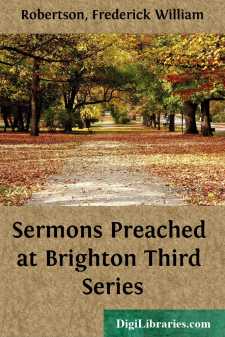Categories
- Antiques & Collectibles 13
- Architecture 36
- Art 48
- Bibles 22
- Biography & Autobiography 813
- Body, Mind & Spirit 142
- Business & Economics 28
- Children's Books 17
- Children's Fiction 14
- Computers 4
- Cooking 94
- Crafts & Hobbies 4
- Drama 346
- Education 46
- Family & Relationships 57
- Fiction 11829
- Games 19
- Gardening 17
- Health & Fitness 34
- History 1377
- House & Home 1
- Humor 147
- Juvenile Fiction 1873
- Juvenile Nonfiction 202
- Language Arts & Disciplines 88
- Law 16
- Literary Collections 686
- Literary Criticism 179
- Mathematics 13
- Medical 41
- Music 40
- Nature 179
- Non-Classifiable 1768
- Performing Arts 7
- Periodicals 1453
- Philosophy 64
- Photography 2
- Poetry 896
- Political Science 203
- Psychology 42
- Reference 154
- Religion 513
- Science 126
- Self-Help 84
- Social Science 81
- Sports & Recreation 34
- Study Aids 3
- Technology & Engineering 59
- Transportation 23
- Travel 463
- True Crime 29
Sermons Preached at Brighton Third Series
Description:
Excerpt
“Even so the tongue is a little member, and boasteth great things. Behold, how great a matter a little fire kindleth! And the tongue is a fire, a world of iniquity: so is the tongue among our members, that it defileth the whole body, and setteth on fire the course of nature; and it is set on fire of hell.”—St. James iii. 5-6.
In the development of Christian Truth a peculiar office was assigned to the Apostle James.
It was given to St. Paul to proclaim Christianity as the spiritual law of liberty, and to exhibit Faith as the most active principle within the breast of man. It was St. John's to say that the deepest quality in the bosom of Deity is Love; and to assert that the life of God in Man is Love. It was the office of St. James to assert the necessity of Moral Rectitude; his very name marked him out peculiarly for this office: he was emphatically called, “the Just:” integrity was his peculiar characteristic. A man singularly honest, earnest, real. Accordingly, if you read through his whole epistle, you will find it is, from first to last, one continued vindication of the first principles of morality against the semblances of religion.
He protested against the censoriousness which was found connected with peculiar claims of religious feelings. “If any man among you seem to be religious and bridleth not his tongue, but deceiveth his own heart, this man's religion is vain.” He protested against that spirit which had crept into the Christian Brotherhood, truckling to the rich, and despising the poor. “If ye have respect of persons ye commit sin, and are convinced of the law as transgressors.” He protested against that sentimental fatalism which induced men to throw the blame of their own passions upon God. “Let no man say, when he is tempted, I am tempted of God; for God cannot tempt to evil; neither tempteth He any man.” He protested against that unreal religion of excitement which diluted the earnestness of real religion in the enjoyment of listening. “Be ye doers of the word, and not hearers only; deceiving your own souls.” He protested against that trust in the correctness of theological doctrine which neglected the cultivation of character. “What doth it profit, if a man say that he hath faith, and have not works? Can faith save him?”
Read St. James's epistle through, this is the mind breathing through it all:—all this talk about religion, and spirituality—words, words, words—nay, let us have realities.
It is well known that Luther complained of this epistle, that it did not contain the Gospel; for men who are hampered by a system will say—even of an inspired Apostle—that he does not teach the Gospel if their own favourite doctrine be not the central subject of his discourse; but St. James's reply seems spontaneously to suggest itself to us. The Gospel! how can we speak of the Gospel, when the first principles of morality are forgotten? when Christians are excusing themselves, and slandering one another? How can the superstructure of Love and Faith be built, when the very foundations of human character—Justice, Mercy, Truth—have not been laid?
- 1st. The license of the tongue.
- 2nd. The guilt of that license.
The first license given to the tongue is slander. I am not of course, speaking now of that species of slander against which the law of libel provides a remedy, but of that of which the Gospel alone takes cognisance; for the worst injuries which man can do to man, are precisely those which are too delicate for law to deal with....


